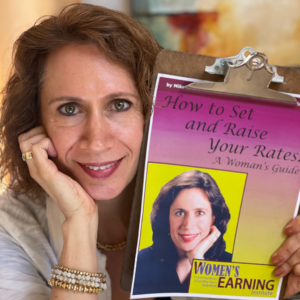 Note- I originally published this article years ago when my son was ten years old, and have updated it because my new book, How to Set and Raise Your Fees—a heart-centered guide for coaches, counselors, and consultants, comes out in September 2024. See end to be notified of book release and classes.(This is a picture of me holding the original cover of the book from 2006. That was me 18 years ago!)
Note- I originally published this article years ago when my son was ten years old, and have updated it because my new book, How to Set and Raise Your Fees—a heart-centered guide for coaches, counselors, and consultants, comes out in September 2024. See end to be notified of book release and classes.(This is a picture of me holding the original cover of the book from 2006. That was me 18 years ago!)
By Mikelann Valterra
On Friday I took my ten-year-old son in for a doctor’s visit. It’s a very busy office. As we were walking down the hallway, he asked me, “Mom, how much does this cost?” I replied without really thinking, “Oh- probably about a hundred dollars.” (Thankfully I do have insurance!) To which he fairly yelled:
“This costs a HUNDRED BUCKS? NO WAY!!”
And of course, all the heads turned our way as our nurse quickly hustled us into our little room for our 15-minute visit.
I then proceeded to tell my son that the doctor had gone to medical school and paid a lot for her education, putting in many years honing her abilities. And that hundred dollars also helped pay the nurses. And the building had to pay rent and buy all those supplies. Of course, by this time he was engrossed in examining the medical equipment pinned to the wall.
But since I still have YOUR attention, let’s think about us—do we charge enough money to really cover all our costs, including all the time, energy and money we’ve put into becoming who we are?
When you think about pricing, you may be overly fixated on charging for your time. Of course you need to charge enough for that hour of your life that you just gave to someone. And you also need to charge enough to cover all your other costs such as your web development and paying your assistant.
You need to charge enough to cover your prep time as well.
It’s not just about your face-to-face time with clients.
I walk into my office at 8am and open all my client files for that day. As a money coach I have a lot of interesting and engaging clients. I remind myself where we were last time, and I formulate a game plan for our upcoming session (knowing that any game plan may get thrown out the window depending on what they bring in with them!) This takes time. And good coffee.
But pricing correctly goes beyond this. I have years of experience. At this point, I rarely come across something that I haven’t seen before, and I draw on this past experience. It’s not just book knowledge. Sometimes I go with my gut in deciding when it’s time to broach certain subjects such as someone’s past money history or what is really going on with their spending. The hour they spend with me is built on many years that came before that hour.
What about you? You are the sum of your experience and I know that you bring this experience to bear in your work, as you should.
An hour of our time is never just an hour. What about all the hours it took you to arrive at this hour?
The hour you spend with a client likely represents countless hours honing your craft.
What about all your training, the classes you have taken, the reading you have done? You have honed your skill, and this is worth a lot of money. It may take five minutes to solve a client’s problem. But it may have taken you five years to get to the point where you can do that.
And no, you don’t have to be perfect. Let go of being perfect. Stop living in fear of not being able to answer a client’s question. You’ll never know it all. You’ll never be perfect. But you are still worth charging a lot of money. You have a lot of wisdom, experience and insight that comes from your past. This is huge. Do you use these things to help your clients get the results they want? Of course!
So ask yourself: Are the results your clients getting worth more than what they are paying you? If the answer is yes, then stop doubting yourself. And raise your fees 10% right now. Because it’s about more than that hour. You have a whole lifetime that has brought you here.
Claim all of who you are. This is worth a lot.
~~~
Please email Mikelann (mikelann@womenearning.com) if you want to be notified of when her new book comes out, How to Set and Raise Your Fees: A heart-centered guide for coaches, counselors, and consultants. She will also let you know about upcoming classes related to this book.
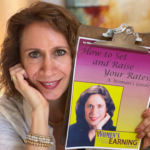

 Remember that “underearning” is the pattern of earning below YOUR potential. It’s about underselling yourself, even though you don’t want to. But you can’t overcome this pattern if you don’t see it. You must identify your pattern- your behaviors– in the first place. Women tend to see each situation in isolation—it is time to connect the dots.
Remember that “underearning” is the pattern of earning below YOUR potential. It’s about underselling yourself, even though you don’t want to. But you can’t overcome this pattern if you don’t see it. You must identify your pattern- your behaviors– in the first place. Women tend to see each situation in isolation—it is time to connect the dots.



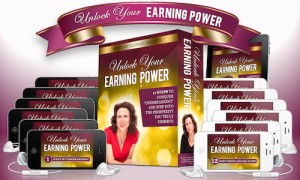

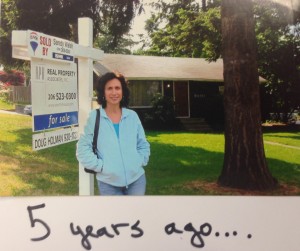

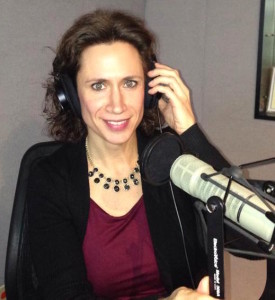 I was recently interviewed on
I was recently interviewed on 
 I know countless savvy women who don’t see themselves as “strugglers”, but they don’t see themselves as financially abundant either. They make decent money, as relative as that is. And they are really frustrated. Why? Because they know in their minds and their hearts that they could make more. They know, at some level, that they are earning less than their true potential.
I know countless savvy women who don’t see themselves as “strugglers”, but they don’t see themselves as financially abundant either. They make decent money, as relative as that is. And they are really frustrated. Why? Because they know in their minds and their hearts that they could make more. They know, at some level, that they are earning less than their true potential.